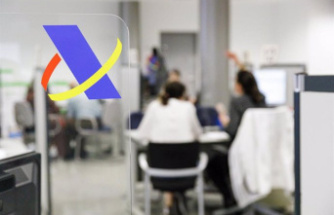School choice swings into high gear for many Tampa Bay area families during February.
7 Months Ago
8 Months Ago
7 Months Ago
Students in Hillsborough and Pinellas counties are anxiously waiting to find out whether they've won seats in their preferred schools, while Pasco County parents have just begun submitting applications. And several charter schools are setting up their admission lotteries.
On the surface, it looks like business as usual.
But a new state law designed to expand choices for families by allowing them to enroll in schools in other counties is having the opposite effect for many, forcing them to the end of the line.
The law gives students the option of enrolling in any school with open seats, regardless of their home address or school location. Tampa area districts already had agreements allowing for such transfers, and hundreds of students participated. Many are children of school employees or commuters, while others live near the county borders and have quick access to nearby schools.
The law sought to reduce red tape and restrictions to make moves easier.
But it also provided that out-of-county children may not displace county residents in a school. Trying to meet that provision has led district and charter school officials to become very cautious. They want to make sure they don't give away seats to non-district students, who can stay through a school's final grade level, without knowing they have enough space for local children who have first claim.
Previously, districts were quicker to give away seats to out-of-county kids if there were openings.
The new climate is particularly vexing for high-growth districts that see population booms filling up schools beyond capacity with students they can't turn away.
To cope, the Hillsborough district has allowed current out-of-county transfers to apply in the first round of choice requests, and will send out responses shortly after in-county students learn their fates. But first-time non-district students will have to wait until summer to even apply, choice communication director Terri Dodson said.
"We have to fill with in-county first," she said.
Even Pinellas County, which has almost no enrollment growth, is delaying decisions on out-of-county choice applications.
"We usually consider them any time in the school year," said Bill Lawrence, associate superintendent. "But the law says you may not displace local students, so now we will hold until after the first round of in-county students."
Parents have asked whether charter schools will follow the same rules. Short answer: The law specifies them, too.
And that could lead to limiting options for charter families, as well.
Lori Toso, lottery coordinator for Lutz Preparatory School, said the likelihood of non-Hillsborough children gaining access to her charter school near the Pasco County line might decrease because of the law.
About one-third of Lutz Prep students come from outside the county. But the school also has a waiting list with hundreds of names.
To comply with the new rules, the school is running separate lotteries, and also will keep separate waiting lists.
"We will pull from the Hillsborough County one first to fill our school. We wouldn't even look at the other wait list until we use up the Hillsborough wait list," Toso said, stressing that existing students will not be turned down.
Pasco County, traditionally a net exporter of students, might also see its numbers change.
Students denied seats in Hillsborough or Pinellas schools, the most prevalent choices, could end up returning to their zoned schools in Pasco. That could force out some of the out-of-county children — especially in schools that already sit at or above capacity.
Pasco already requires non-district students to reapply for their seats annually, just in case growth spurts have squeezed the number of available spaces, said Tammy Rabon, the district's choice supervisor.
But turning students away hasn't been common, she added, and "it's not a practice we would like to engage in. But we have to make sure we comply with the law."
Complicating matters, Pasco recently revised attendance zones for several schools, prompting a wave of discontent that has residents paying keen attention to who lives where. Many families are planning to use the open enrollment process to get back into the schools they were assigned out of, meaning even more out-of-county residents than usual might no longer be able to get in.
Decisions might not arrive until late summer, after all in-county applications are sorted and seats are verified as open.
"We don't un-enroll students until we are contacted by other schools that they have enrolled elsewhere," Rabon said. "If they are entitled to a seat in our zoned schools, we are not going to give it away."
Yet another factor: How districts define capacity.
Schools must adhere to the class size caps on the numbers of students in classrooms. With population increasing in several counties, including Hillsborough and Pasco, districts are changing their definitions for when a school is considered full.
The Pasco School Board now considers a school at capacity when it is 90 percent full — down from 100 percent previously. The Hillsborough board set capacity at 90 percent for high schools and 95 percent for others. Pinellas schools set capacity at 95 percent, with the caveat that classroom functions will be considered.
"Districts that have a little bit higher growth are worried about when they give a seat away to a non-zoned student and that student is now going to remain there," said Lawrence, the Pinellas associate superintendent. "They know there are going to be new homes and they're going to get new kids. So I think they're being a little more conservative."
Officials in all districts said if a student gets released from their home county and then does not win a seat elsewhere, they will still have access to their neighborhood school.
Contact Jeffrey S. Solochek at (813) 909-4614 or jsolochek@tampabay.com. Follow @jeffsolochek.
Our editors found this article on this site using Google and regenerated it for our readers.













